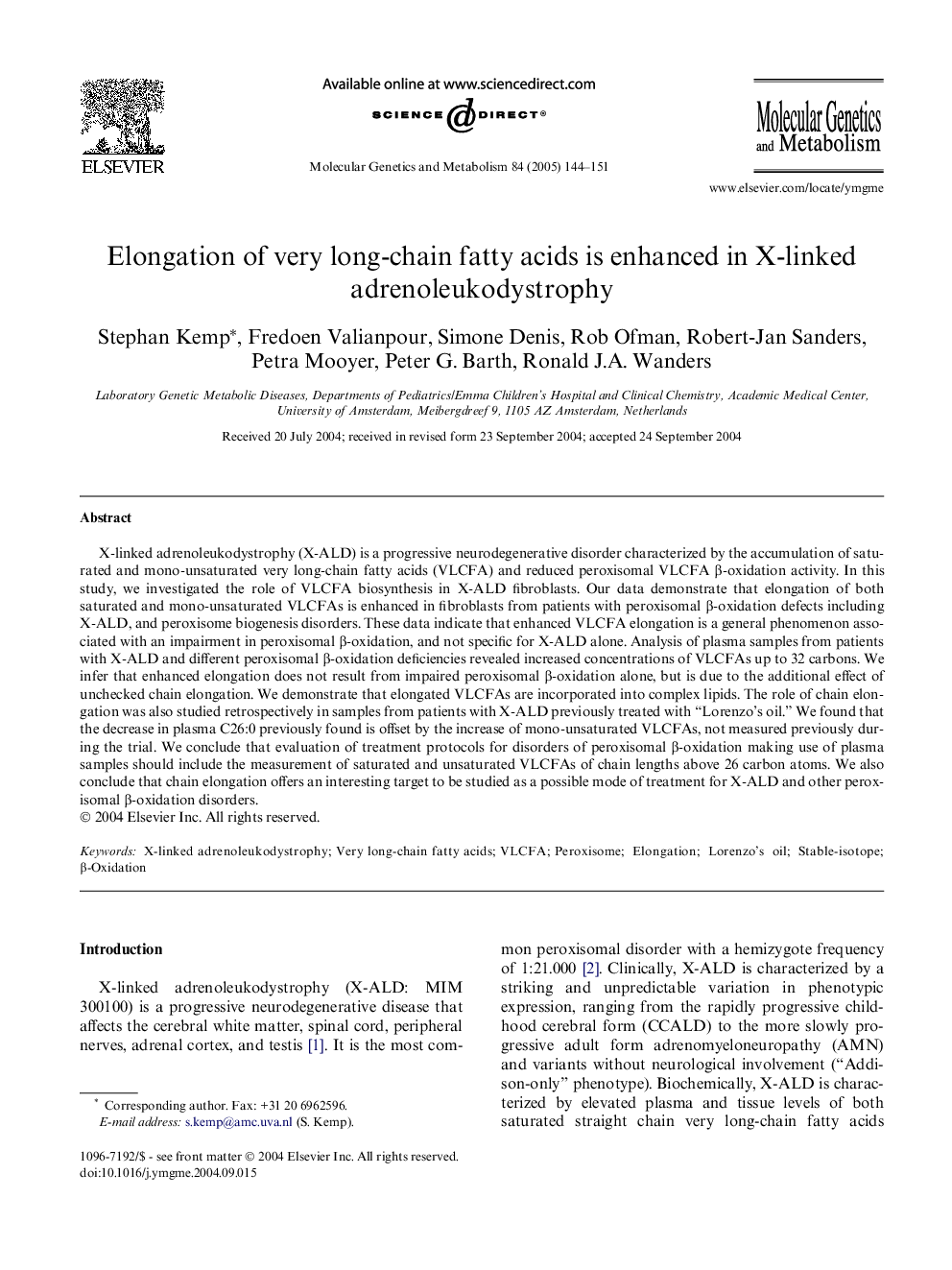| Article ID | Journal | Published Year | Pages | File Type |
|---|---|---|---|---|
| 10834204 | Molecular Genetics and Metabolism | 2005 | 8 Pages |
Abstract
X-linked adrenoleukodystrophy (X-ALD) is a progressive neurodegenerative disorder characterized by the accumulation of saturated and mono-unsaturated very long-chain fatty acids (VLCFA) and reduced peroxisomal VLCFA β-oxidation activity. In this study, we investigated the role of VLCFA biosynthesis in X-ALD fibroblasts. Our data demonstrate that elongation of both saturated and mono-unsaturated VLCFAs is enhanced in fibroblasts from patients with peroxisomal β-oxidation defects including X-ALD, and peroxisome biogenesis disorders. These data indicate that enhanced VLCFA elongation is a general phenomenon associated with an impairment in peroxisomal β-oxidation, and not specific for X-ALD alone. Analysis of plasma samples from patients with X-ALD and different peroxisomal β-oxidation deficiencies revealed increased concentrations of VLCFAs up to 32 carbons. We infer that enhanced elongation does not result from impaired peroxisomal β-oxidation alone, but is due to the additional effect of unchecked chain elongation. We demonstrate that elongated VLCFAs are incorporated into complex lipids. The role of chain elongation was also studied retrospectively in samples from patients with X-ALD previously treated with “Lorenzo's oil.” We found that the decrease in plasma C26:0 previously found is offset by the increase of mono-unsaturated VLCFAs, not measured previously during the trial. We conclude that evaluation of treatment protocols for disorders of peroxisomal β-oxidation making use of plasma samples should include the measurement of saturated and unsaturated VLCFAs of chain lengths above 26 carbon atoms. We also conclude that chain elongation offers an interesting target to be studied as a possible mode of treatment for X-ALD and other peroxisomal β-oxidation disorders.
Keywords
Related Topics
Life Sciences
Biochemistry, Genetics and Molecular Biology
Biochemistry
Authors
Stephan Kemp, Fredoen Valianpour, Simone Denis, Rob Ofman, Robert-Jan Sanders, Petra Mooyer, Peter G. Barth, Ronald J.A. Wanders,
